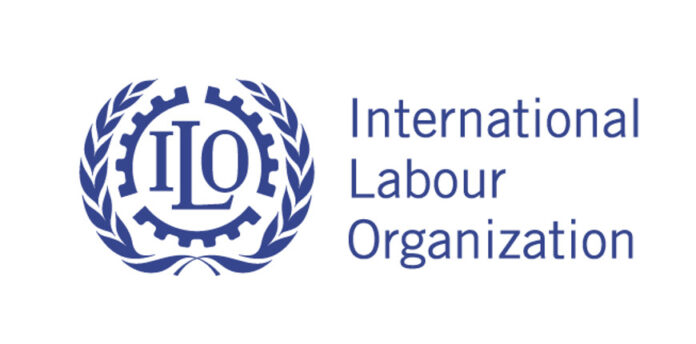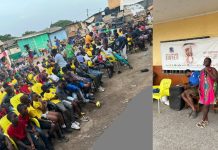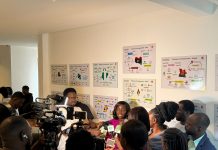DURBAN, South Africa, May 2022/ — The 5th Global Conference of the Elimination of Child Labour on 20 May 2022 closed with the adoption of ‘Durban Call to Action’ to deal with the scourge of child labour.
The conference was a collaboration between the South African Government, the ILO, Social Partners, International Organisations and other stakeholders. It took years of hard work and dedication to arrive at this point.
This week was preoccupied with the difficulties children face in places of work – where they should not be in the first place – often in difficult circumstances characterised by decent work deficits and hazardous conditions.
The different sessions and panel discussions deliberated on varied topics ranging from agriculture and climate change to education and global supply chains – with the focus on how these elements contribute to child labour.
The role of children as the benefactors of all efforts was appreciated. The Children’s Session was intended to recognise children’s voices in a matter that concerns them – along the lines of: “Nothing About Us Without Us!”
Delegates discussed subjects ranging from the prevalence of child labour in agriculture; the formalisation of the informal economy and the creation of decent work; the need for additional resources and targeted policies addressing the root causes of child labour; the challenge of COVID-19 eventually reverting years of progress in the fight against child labour; forced labour and child trafficking; supply chains and child labour.
Both in-person and online conference attendees adopted the document by affirming their commitment to preventing and eliminating child labour. These include representatives of governments, employers’ and workers’ organizations, United Nations agencies, international and civil society organizations, businesses, children and academic institutions.
Government representatives from previous host countries – Norway, the Netherlands, Brazil, and Argentina – took to the floor to call for an enabling environment to end child labour.
Employment and Labour Minister of the Republic of South Africa, Thulas Nxesi said the message has been clear: “unless governments pass the necessary legislation. Unless governments and business accept that we need structural change to the economy, child labour will not be eliminated. It must not be about profit, but also about people at the centre. It will also be an oversight on our part not to recognise children’s voices”.
Nxesi said the challenge was how does the conference consolidate the gains made to benefit the vulnerable, “so that we do not go back. How do we strengthen basic education, provide kids with necessary transport, provide a meal a day and ensure children have access to social protection?”
“When we opened the Fifth Global Conference on the Elimination of Child Labour on Sunday, 15 May 2022, we expected good responses locally and internationally. However, we are humbled by the scale of participation, the positive feedback and words of encouragement from across the globe”, said Nxesi.
Presenting the Durban Call to Action six-point plan Department of Employment and Labour Director-General Thobile Lamati said the drafting committee had worked day and night to come up with a collective document.
He said in doing its work the drafting committee after having gone through inputs decided that the ‘Call to Action’ should focus on:
Accelerating multi-stakeholder efforts to prevent and eliminate child labour with priority given to the worst forms of child labour by making decent work a reality for adults and youth above the minimum age for work and;
End Child labour in agriculture;
Strengthen the prevention and elimination of child labour including its worst forms, forced labour, modern slavery and trafficking in persons and the protection of survivors through data-driven and survivor informed policy and pragmatic responses;
Realise children’s right to education and ensure universal access to free compulsory, quality, equitable and inclusive education and training;
Achieve universal access to social protection; and
Increase financing and international co-operation for the elimination of child labour and forced labour.
The 5th Global Conference on the Elimination of Child Labour follows Oslo, The Hague, Brasilia and Buenos Aires. The conference brought together ministers, national agencies, international and civil society organisations, businesses, children and academic institutions. The participants had gathered in Durban, South Africa to discuss measures to prevent and eliminate child labour and forced labour.
“The Durban Call to Action commits the Social Partners and other stakeholders to accelerate efforts to eliminate child labour and the worst forms of labour by promoting decent work; protecting survivors; universalising access to education and social protection; and increasing multi-stakeholder cooperation and financing for ending child labour and forced labour”, concluded Nxesi.
This is a victory for South Africa and Africa as it’s the first time the conference occurred on the continent. In true South African tradition, a choir sang a rousing rendition of “Shosholoza” and chanted their support for the elimination of child labour!
“The outcome document is the key means to achieve the elimination of child labour,” said Martha Newton, ILO Deputy Director-General for Policy. “After regional consultations across the world last year, a series of common thematic areas emerged, including education, social protection, and poverty and informality.”
The group’s next common challenge is to implement it.
The International Labour Organization and the South African government have been applauded for being excellent hosts for this international event.
Much has been discussed and now is the time for action. As many have said this week, it’s time we walk the talk!
Starting with this: all the branding materials used in the conference will be recycled into school bags for local students affected by the floods in Durban, South Africa.














































